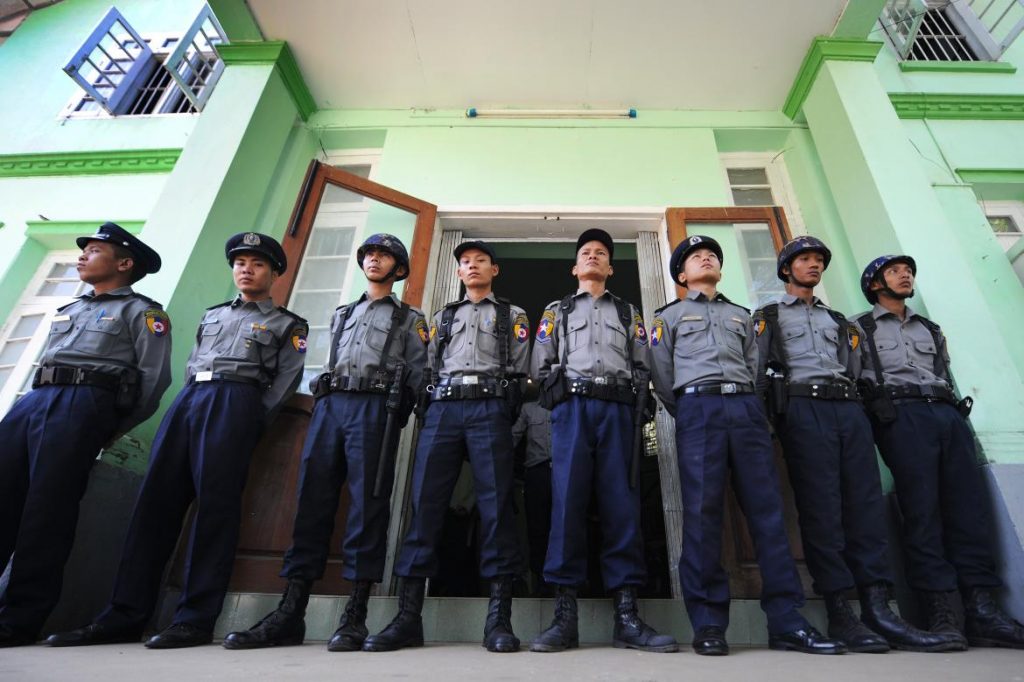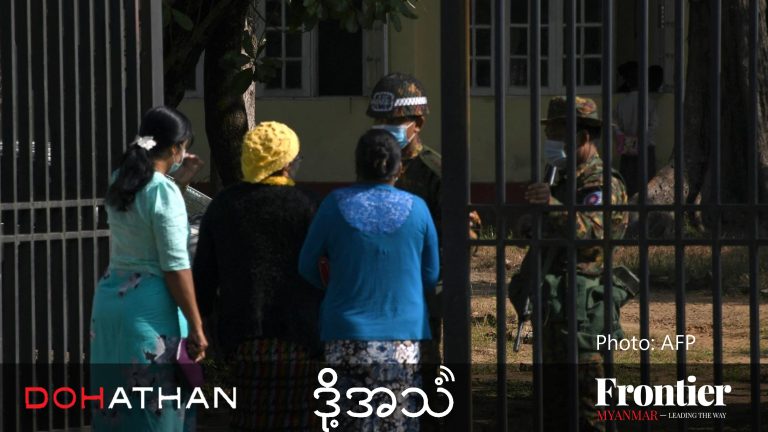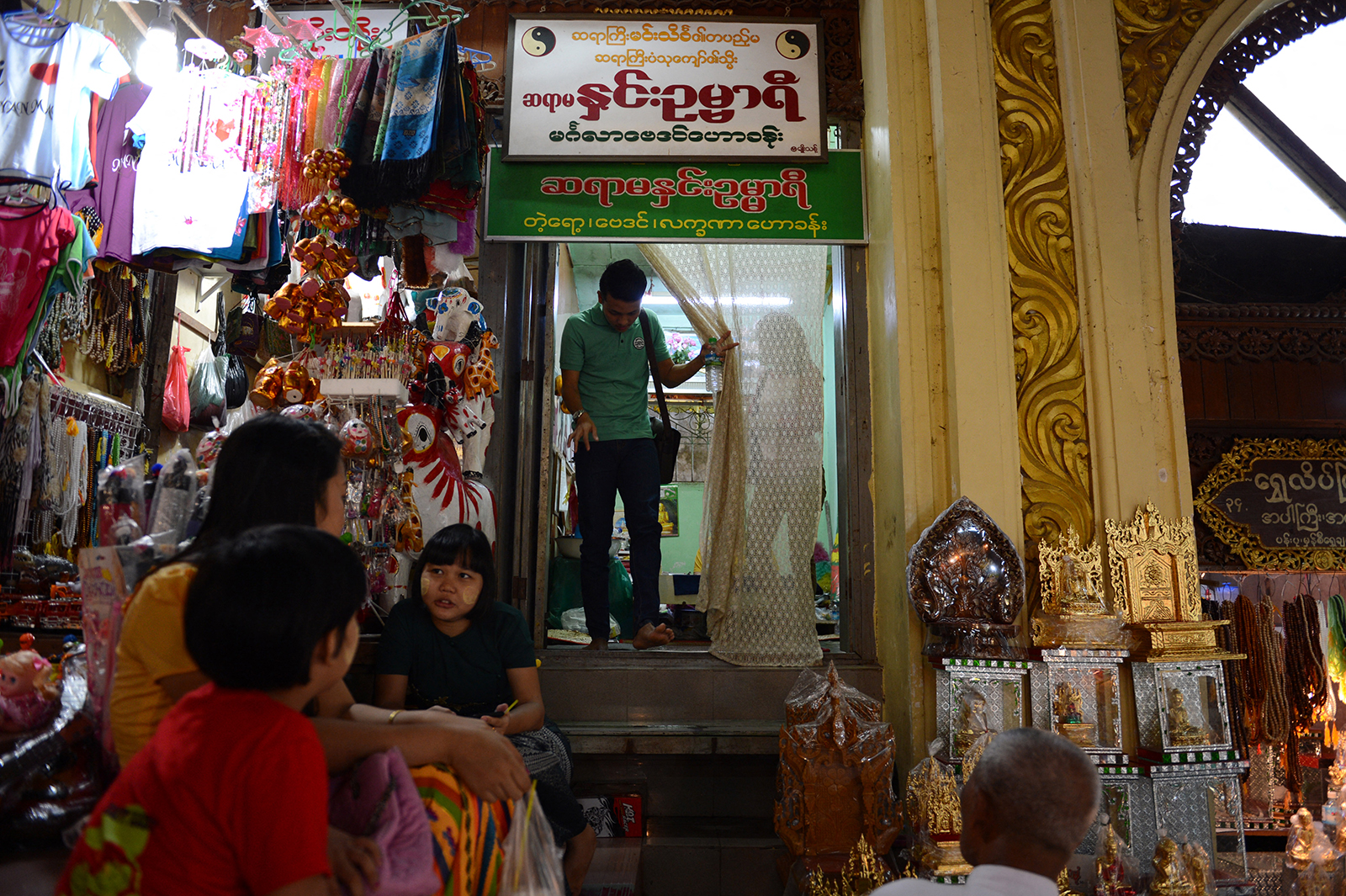A culture of accountability and public belief in the fairness of the judicial system can only exist if the public are welcome in the courts.
By JOSH PEMBERTON | FRONTIER
Improving the rule of law has been at the centre of State Counsellor Aung San Suu Kyi’s vision for democratic reforms in Myanmar. In last year’s New Year speech, she stated: “the administration of justice shall be fair and just and be in accord with the internationally accepted norms.”
While establishing the rule of law is an ambitious goal that will take time to accomplish, the government could quickly take a major step towards ensuring accountability and transparency in the administration of justice by opening the doors of Myanmar’s courtrooms and welcoming the presence of the public.
The concept of the rule of law entails several important ideas. Public power should not be exercised arbitrarily, the law should be clear and publicly known, all people should be equal before the law, and disputes should be resolved by impartial judges who apply the law fairly.
Fundamentally, the rule of law requires a culture in which judges are accountable to the public and the public believes in the fairness of the legal system. Such a culture can only exist if the public are welcome in the courts. In Myanmar, however, they are not always so welcome, as described in a report published today by Justice Base.
Support more independent journalism like this. Sign up to be a Frontier member.
The report details the experiences of Myanmar researchers recruited and trained by Justice Base who spent a month attempting to observe proceedings in 36 of Yangon’s 50 courts. Its conclusions are worrying.
The observers faced some sort of difficulty in entering one in every two courtrooms they attempted to visit. In some instances, the rooms were simply too small to permit public observation. On other occasions, observers were subject to intimidation and questioning by judges, police, law officers and court staff. These officials often made it clear that members of the public were not welcome during court proceedings, particularly if they had no personal connection to a case.
Let’s be clear: these restrictions are contrary not only to the concept of the rule of law, but to both the Constitution of Myanmar and international law.
To be sure, there will occasionally be valid reasons for excluding the public from court proceedings, such as when the privacy of a victim so requires. But such circumstances are exceptional. In the vast majority of cases, Myanmar law, and the rule of law, requires that public observation of proceedings is permitted.
Improving public access to the courts is not a panacea for the numerous problems facing Myanmar’s legal system. It will not improve the quality of legal education or the extent to which women can access justice, and it will not alone eliminate judicial corruption. But it is an important step toward developing a culture in which the rule of law can flourish, and an easy one to take.
Some key ways to improve public access include discontinuing the practices of acting as if members of the public can only (or should only) observe a hearing if they have a personal connection to a particular hearing; requiring members of the public to provide identification cards before entering a courthouse or courtroom; and requiring the permission of a judge to enter a courtroom.
Judges should, in accordance with domestic law, proceed on the basis that courtrooms, courthouse buildings and their premises are open to the public and only restrict the right to a public hearing in exceptional circumstances. Court officials should also take steps to improve public access to courtrooms, including by taking measures such as providing seating whenever courtroom space permits, making bathrooms freely available to the public and ensuring that up-to-date and accurate cause lists are publicly posted.
Only when the public are free to enter the courts will judges be truly accountable for the decisions they make. And only when such access is permitted can the public begin to develop trust in judges, lawyers, and Myanmar’s legal system as a whole.







